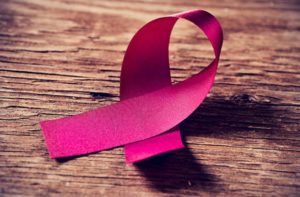

Breast cancer is a condition that can be effectively treated, if discovered in time. The delay or failure to diagnose breast cancer, however, can be devastating to a patient. If your doctor failed to appreciate the signs and symptoms of your cancer, here are some important things you should know.
What are the Symptoms of Breast Cancer?
Some of the signs and symptoms of breast cancer overlap with other conditions. As a result, one sign or symptom alone does not mean that a patient has breast cancer. However, certain findings are common with breast cancer patients and should, at the very least, prompt a doctor to investigate the possibility of cancer. Common findings consistent with breast cancer include:
- A lump in the breast
- A change in the feel and appearance of the breast or nipple
- Discharge from the nipple, despite not breastfeeding
In addition, to these findings, there are also certain risk factors that some patients may have for breast cancer. According to the Center for Disease Control and Prevention, risk factors include:
- Older Age
- Family history of breast cancer
- Early on-set of puberty
- Late menopause, particularly after the age of 55
- Obesity
- Any history of exposure to carcinogens
When a patient presents to a doctor with complaints and findings consistent with a cancer diagnosis, accepted standards of medical care require that the doctor investigate further. This can include repeated physical examinations as well as any number of diagnostic tests and/or procedures. Some testing that is available to doctors includes:
- Mammography
- Fine needle biopsy
- Magnetic Resonance Imaging (MRI)
- Ultrasound
- Genetic testing
- Oncotype DX testing
- MammaPrint
- Vacuum-assisted breast biopsy
Ultimately the goal for every cancer patient is early diagnosis and treatment which allows for the greatest chance of a full recovery.
How Do You Prove a Failure to Diagnose Breast Cancer Case?
To hold a doctor responsible for failing to diagnose breast cancer you must present expert testimony that the doctor departed from accepted standards of medical care. This legalese basically means that the doctor who was treating your condition failed to provide the type of care expected of a reasonable doctor in the community. To do this, a medical expert must explain how and why the doctor committed medical malpractice. This may be as simple as testimony from an expert that establishes that your doctor failed to order a mammogram, when it was medically necessary to do so.
In addition, an important issue that is raised in breast cancer cases is the legal question called “causation”. This legal concept requires a patient to show that there was some damage because of the delay. In cancer cases, the harm is usually the progression of the cancer from an earlier stage to a later, less curable stage. Most cancers are classified as stages, 0 through 4, although these stages are each also broken down further into substages as well. The higher the stage, the smaller the survival rate. The stages are:
- Stage 0 also known as carcinoma in situ, represents the presence of abnormal cells that have not spread to nearby tissue. It is technically not considered cancer, but it may become cancer if not treated.
- Stage I is usually a smaller cancer that has not spread too deeply or reached the lymph nodes.
- Stage II and Stage III represent growing cancer affecting nearby tissue and becoming more invasive.
- Stage IV cancer has spread to other organs or parts of the body usually with a very poor prognosis for the patient.
In a medical malpractice case alleging a failure to diagnose cancer, you must show that the failure caused your untreated cancer to advance from a lower stage to a higher one. This is important because the chances for survival go down as the cancer progresses to a higher stage. Further, as the cancer grows, more aggressive measures may need to be taken that might not have been necessary had the cancer been detected earlier.
Lawyers24-7.com | Ask Questions – Get Answers
If you have any questions about your medical malpractice failure to diagnose case, contact our experienced medical malpractice attorneys by email or calling (800) 762-9300. You can also simply fill out one of our case intake forms and we will have one of our attorneys get right back to you.
You Might Also Be Interested In:

